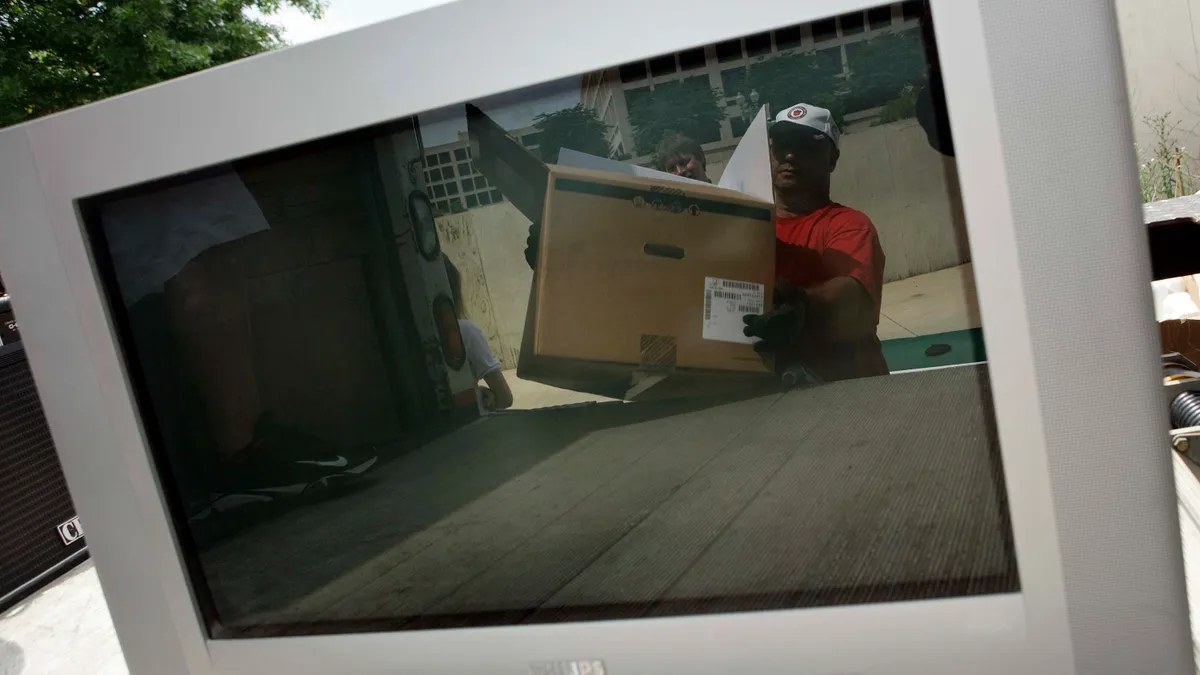Dive Brief:
- South Carolina will end weight-based collection goals for its electronics takeback program in favor of recycling convenience requirements aimed at making it easier for residents to return old TVs and computers. It’s a model that could become more common in states with electronics extended producer responsibility programs as such devices continue to get lighter.
- Gov. Henry McMaster signed the updated law, H4775, in June, and the changes will go into effect in 2023. South Carolina is the second state to move to this model, which is based on changes Illinois made to its program in 2017.
- The new law would require between one and three collection sites, depending on population, for each of South Carolina’s counties, or a site could be replaced with four community collection events per year. The requirement is meant to be a more stable way to ensure devices get recycled, said Lelande Rehard, senior associate for policy and programs at the Product Stewardship Institute.
Dive Insight:
South Carolina first passed its EPR law for televisions and computers in 2010. It required device manufacturers to join a stewardship program to help local governments recycle the devices, according to the bill. State law also prohibits residents from knowingly disposing of these devices.
South Carolina recycled about 8,439 tons of electronics last year, with the residential stream constituting about 93% of the total weight collected. The weight of electronics collected in the state has declined since 2016.
Supporters of the updated law say requiring producers to recover a certain weight of electronics doesn’t match up with local demand for recycling outlets.The law was scheduled to sunset in 2023, prompting the state to modernize the requirements, Rehard said. “There’s less weight involved [in electronics] now, but that doesn’t mean less devices to get rid of,” he said.
Starting in 2023, producers will still keep track of the weight of covered electronics collected, but the emphasis will shift toward making sure counties that want to opt into takeback programs have adequate locations to meet demand, according to the bill.
Manufacturers in the state must still cover the cost for packaging and transporting devices collected at these locations to recyclers, the bill says. Local governments that opt into the collection programs will cover costs to host the collection sites or takeback events.
PSI is now working with lawmakers in Oregon on an effort to update its electronics EPR bill, one of the older programs in the country. A future bill in the state could also emphasize access over weight, Rehard said.
The Consumer Technology Association, which lobbied in Illinois for changes to its law that follow a similar model, has also pushed for convenience-based standards in other electronics EPR states, including Vermont and Maine, while also advocating for states to add more types of electronics to their programs, Rehard said. However, those states are more interested in keeping their existing models, which include logging weight metrics each year and adjusting the weight requirements based on previous years’ progress, he added.
Alaska is currently going through a stakeholder process to consider establishing its first EPR program for electronics. The state is looking for ways to keep electronics out of its landfills and is currently handling some e-scrap through pilot programs. An EPR program could offer more sustainable funding, Rehard said.















